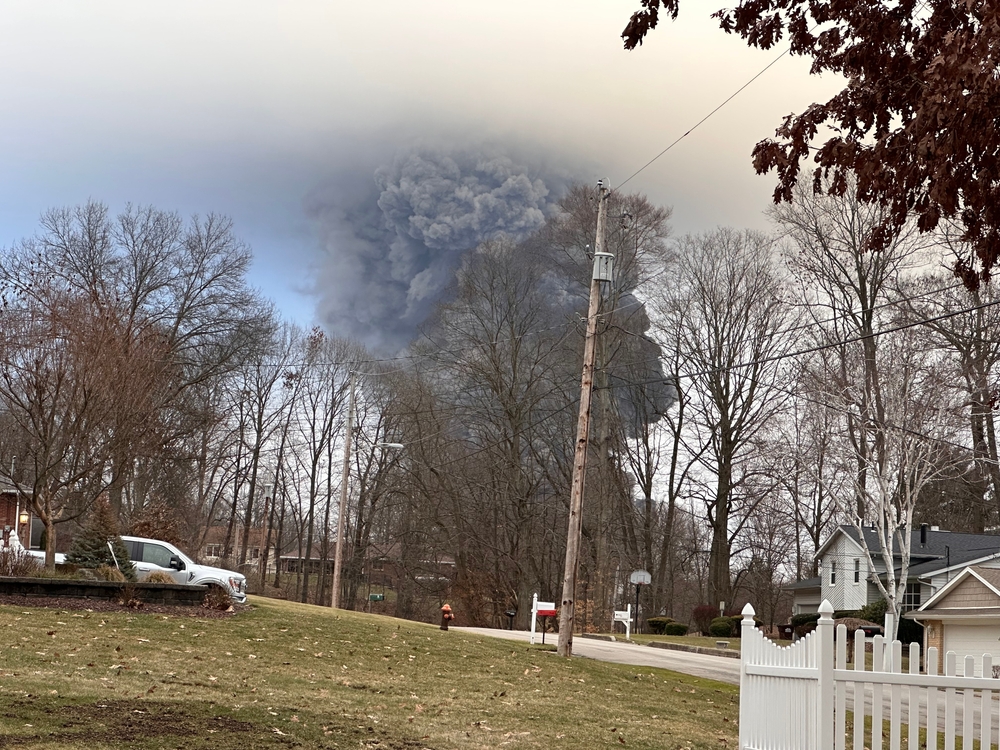EPA whistleblower demands investigation into high-tech aircraft response after Norfolk Southern derailment
This article features Government Accountability Project client Robert Kroutil and was originally published here .
Pittsburgh — Pittsburgh's Action News 4 is doing a one-on-one interview with a U.S. Environmental Protection Agency contractor who became a whistleblower after saying there were mistakes in the response to the Norfolk Southern Railroad derailment in East Palestine, Ohio.
He has called for an investigation by the EPA's inspector general, citing potential impacts to public health and the safety of emergency responders.
During his visit to eastern Palestine after the derailment, EPA Administrator Michael Regan called attention not once but twice to a high-tech aircraft called ASPECT that could be deployed quickly in the event of a chemical disaster.
“We've been leading thorough air quality testing on the ground, including with our advanced technology ASPECT aircraft,” Regan said on Feb. 16, 2023, about two weeks after the derailment.
Five days later, he said, “We're very confident. We're very confident in the technology that we've deployed. We've deployed the aircraft.”
“EPA's emergency response airborne remote sensing platform will collect imagery and monitor disaster sites from a safe distance,” the agency said in a promotional video about ASPECT.
Used effectively after the Columbia disaster and Hurricane Katrina, the plane's advanced sensors quickly collect critical data to help EPA keep residents and emergency responders safe.
Now the whistleblower is calling on the EPA's inspector general to investigate why the plane didn't fly over the fiery train derailment in eastern Palestine until four days after the incident.
“We just couldn't get this plane out in time,” said Robert Croutile, an EPA contractor at the time of the derailment.
“Unfortunately, that's not how emergency response works in the United States,” he said.
Clotil, who said he was responsible for quality control of data analysis during the ASPECT aircraft's response to the Norfolk Southern derailment, filed a whistleblower affidavit arguing that residents of East Palestine and Darlington Township have a right to know the truth about EPA's actions and that the aircraft should have been dispatched immediately.
“That's why I came forward as a whistleblower. Once I found out exactly what chemicals were in the train cars, five minutes later I made the call to Texas and got the plane moving,” Clotil said.
The Norfolk Southern Railroad derailment occurred on the evening of Friday, February 3, 2023. The EPA initially requested that the ASPECT aircraft fly late in the evening on Sunday, February 5. The aircraft arrived at Pittsburgh International Airport in the early morning of February 6, when the fire broke out, but weather conditions prevented it from flying that day, according to the EPA.
Pittsburgh's only news helicopter, Sky 4, encountered similar weather just outside Ohio's flight restrictions.
The plane flew over eastern Palestine on February 7, but Clotilde said that if it had arrived earlier, the plane's unique sensors might have been able to collect important data about the burning car.
“This is the nation's premier capability. It's a state-of-the-art sensor. So it was concerning that we hadn't deployed it for four days,” he said.
Clotil told WTAE that the plane's sensors should show that temperatures inside the PVC tanker were dropping, not rising.
“This is something the EPA was able to learn independently from the railroads and the railroad's contractors,” Cloutile said.
He believes decision-makers may not have chosen to open vehicle exhausts to burn chemicals because they knew there was no risk of a catastrophic shrapnel.
“We would have been able to determine the exact temperature and they would have known that on the 6th and could have made informed decisions regarding venting and burning,” he said.
National Transportation Safety Board Chair Jennifer Homendy said her board's investigation determined the venting and flaring were not necessary.
“The other option was to calm things down. Things were calming down.”
Chemical company officials said they had tried to communicate this to decision makers after determining that the tanks were in fact starting to cool and no dangerous reactions were occurring.
An EPA spokesman responded to Cloutil's claims by pointing out that the mission was expedited after the aircraft was requested.
“EPA's description of the ASPECT response in East Palestine is incorrect. As soon as the request was made, an aircraft was dispatched to Pittsburgh from its base in Addison, Texas, the same day,” the spokesman said.
It further stated that “weather conditions on February 7, 2023 were suitable for data collection and the aircraft conducted two flight missions, providing the information it was requested to collect, consistent with previous ASPECT responses.”
The agency cannot comment on internal personnel matters involving contractors, but told Pittsburgh's Action News 4, “The agency takes allegations of violations or misconduct seriously. ASPECT's response in East Palestine followed standard operating procedures, consistent with previous ASPECT responses.”


